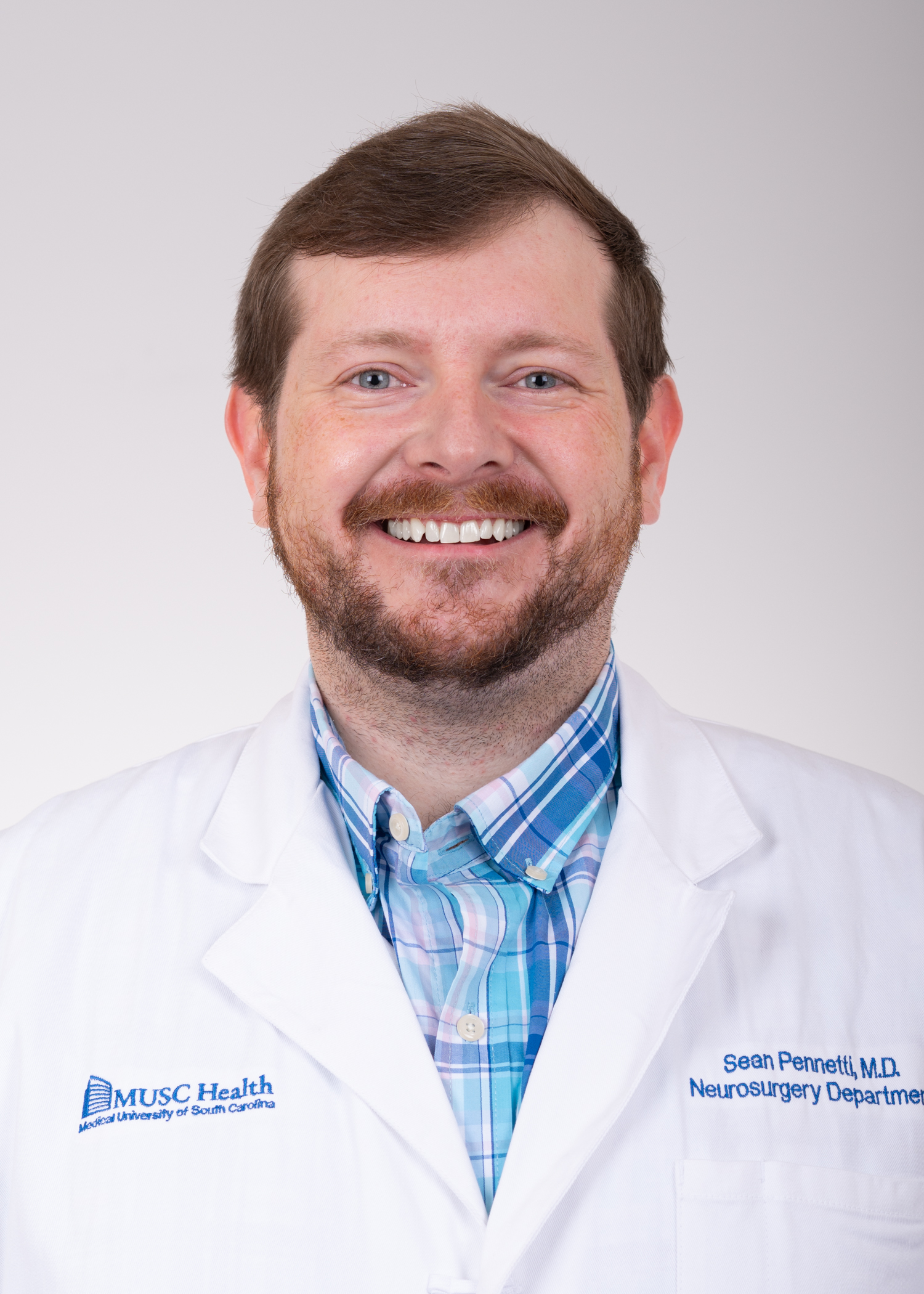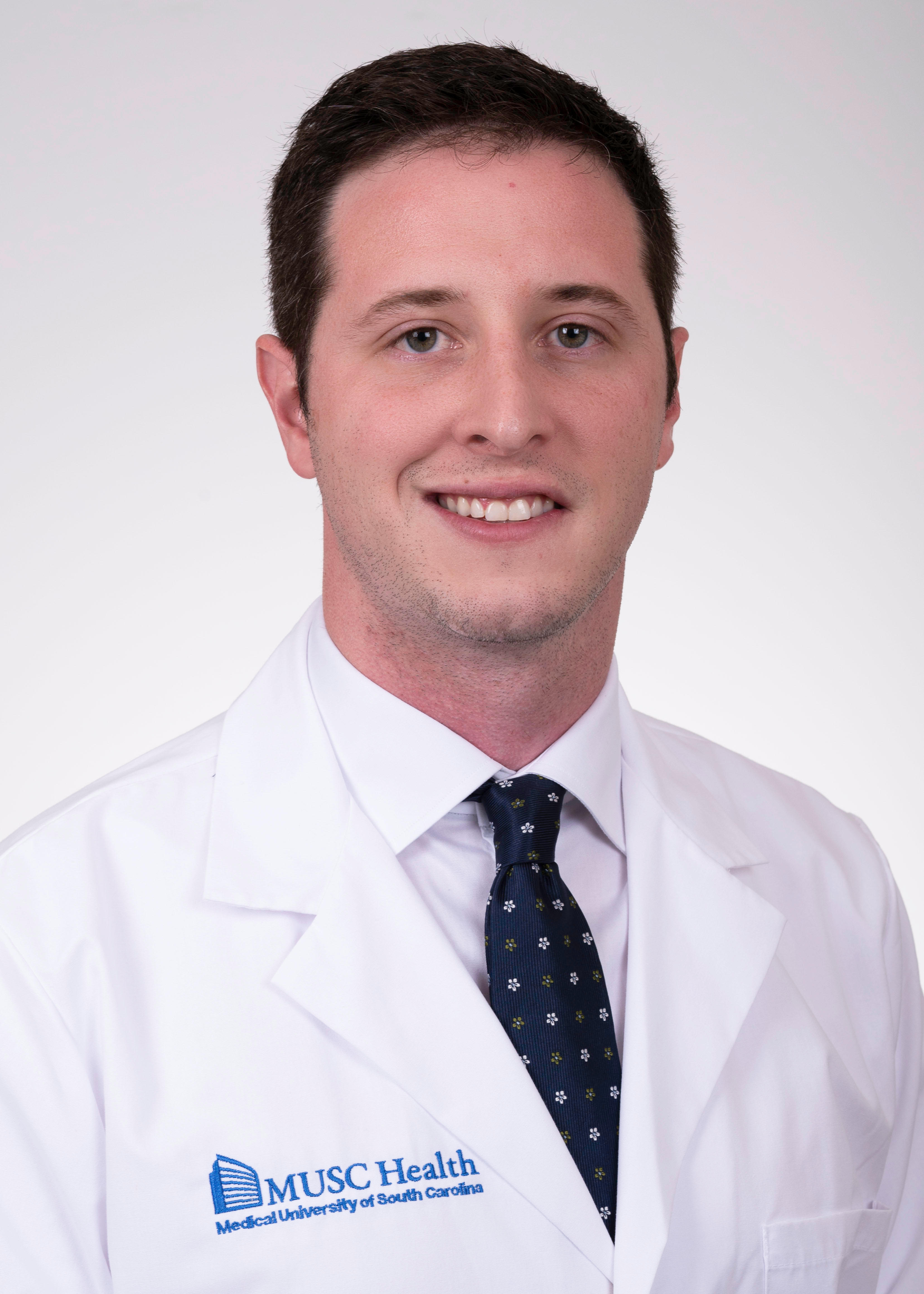Brain tumor treatment
Neuro-oncology requires close collaboration among many highly specialized physicians, including neurosurgeons, neurologists, oncologists, radiation oncologists, otolaryngologists (ear, nose and throat specialists), rhinologists (nose specialists), radiologists and pathologists, depending on the location of the tumor, as well as specialized nursing staff and a research team to shepherd clinical trials.
At Hollings, our neuro-oncology team holds weekly tumor board meetings to discuss cases and get opinions from doctors with these different specialties, ensuring that treatment options are considered from all perspectives. In addition, the team includes pharmacists, physical therapists and speech therapists who specialize in working with people with brain tumors.
Access to clinical trials is an important part of treatment — clinical trials may offer access to new treatments that could be better than current treatments and that could become the standard of care in the future. At Hollings, we offer brain tumor clinical trials geared toward a variety of situations. Ask your doctor whether there might be a clinical trial that’s right for your situation.
Possible treatments include:
Surgery for brain tumors
Surgery is the primary treatment for many types of brain tumors. The goal is to remove as much of the tumor as possible.
Tumor treating fields
Hollings offers the Optune Gio device, which creates electrical fields, also called tumor treating fields, that interfere with glioblastoma cancer cell division. The device is worn on the head and can be hidden, if you prefer, by a hat or scarf. It has been shown to improve survival both for patients who are newly diagnosed and have completed initial treatment and for patients whose cancer has returned.
Chemotherapy for brain tumors
Chemotherapy drugs interfere with processes that are necessary for cancer cells to survive, like replication or DNA repair. There are a limited number of chemotherapy drugs that can be used for brain tumors because the blood-brain barrier protects the brain from most substances circulating in the bloodstream.
To avoid the blood-brain barrier, chemotherapy can be delivered directly into the brain by inserting small wafers of the drug carmustine into the area where the tumor was removed. This is done as part of surgery. Gliadel Wafers are approved for specific cases of high-grade glioma and recurrent glioblastoma.
Targeted therapy for brain tumors
Like chemotherapy, targeted therapies are drugs. Unlike chemotherapy, targeted therapies attack a target that is specific to a tumor instead of a function that happens on both normal and cancer cells. This means the damage to normal cells is limited. The tumor must have the specific genetic mutation that the targeted therapy is primed for in order for you to benefit from the drug.
Radiation therapy for brain tumors
Gamma Knife
Hollings utilizes an Elekta Esprit Gamma Knife, the most advanced, precise stereotactic radiosurgery system available. This system uses 192 beams of radiation to pinpoint brain tumors within 0.3 mm of accuracy.
This outpatient procedure is primarily used for metastatic brain cancer — when melanoma or cancer of the lungs, breast or kidneys travels to the brain. Treating the brain metastases improves quality of life. You may also become eligible for clinical trials for your primary cancer once the brain metastases are treated.
Gamma Knife is also used for primary brain tumors, certain benign tumors such as meningiomas, and other neurological problems.
GammaTile
GammaTile is a radioactive wafer that is inserted in the brain after a tumor is removed. This is done as part of the surgery. The GammaTile gives off radiation to a small area surrounding the tumor location to kill any tumor cells too small for the surgeon to see. It takes about six weeks for the majority of the radiation to be delivered. This treatment is approved for a variety of brain tumors.
Hollings has achieved Elite GammaTile Center status, the first center in South Carolina to do so. This status indicates our center's experience with this device.
External beam radiation therapy
This therapy is often used for primary brain tumors. It consists of a short daily treatment given over the course of several weeks. Hollings uses IMRT (intensity modulated radiation therapy) as well as IGRT (image-guided radiation therapy) to ensure that the radiation targets the tumor and avoids treating normal healthy tissue. This treatment is available at our main location on the Charleston peninsula and in Mount Pleasant.
Refer a brain tumor patient
To refer a brain tumor patient to Hollings, please call patient referral coordinator Kelly Fehr at 843-985-0577.
Nurse navigator support
Our brain tumor nurse navigator, Janequa McKnight, BSN, RN, will help you understand what to expect during treatment and answer questions you may have.













